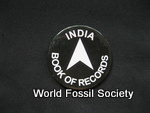University of Oregon geologists have tapped water in surface rocks to show how magma forms deep underground and produces explosive volcanoes in the Cascade Range.
“Water is a key player,” says Paul J. Wallace, a professor in the UO’s Department of Geological Sciences and coauthor of a paper in the May issue of Nature Geoscience. “It’s important not just for understanding how you make magma and volcanoes, but also because the big volcanoes that we have in the Cascades — like Mount Lassen and Mount St. Helens — tend to erupt explosively, in part because they have lots of water.”
A five-member team, led by UO doctoral student Kristina J. Walowski, methodically examined water and other elements contained in olivine-rich basalt samples that were gathered from cinder cone volcanoes that surround Lassen Peak in Northern California, at the southern edge of the Cascade chain.
The discovery helps solve a puzzle about plate tectonics and Earth’s deep water cycle beneath the Pacific Ring of Fire, which scientists began studying in the 1960s to understand the region’s propensity for big earthquakes and explosive volcanoes. The ring stretches from New Zealand, along the eastern edge of Asia, north across the Aleutian Islands of Alaska and south along the coast of North and South America. It contains more than 75 percent of the planet’s volcanoes.
To understand how water affects subduction of the oceanic plate, in which layers of different rock types sink into the mantle, the UO team studied hydrogen isotopes in water contained in tiny blobs of glass trapped in olivine crystals in basalt.
To do so, the team used equipment in Wallace’s lab, CAMCOR, the Carnegie Institution in Washington, D.C., and a lab at Oregon State University. CAMCOR is UO’s Advanced Materials Characterization in Oregon, a high-tech extension service located in the underground Lorry I. Lokey Laboratories.
Next, the team fed data gained from the rocks into a complex computer model developed by co-author Ikudo Wada, then of Japan’s Tohoku University. She has since joined the University of Minnesota.
That combination opened a window on how rising temperatures during subduction drive water out of different parts of the subducted oceanic crust, Walowski said. Water migrates upwards and causes the top of the subducted oceanic crust to melt, producing magma beneath the Cascade volcanoes.
The key part of the study, Wallace said, involved hydrogen isotopes. “Most of the hydrogen in water contains a single proton,” he said. “But there’s also a heavy isotope, deuterium, which has a neutron in addition to the proton. It is important to measure the ratio of the two isotopes. We use this ratio as a thermometer, or probe, to study what’s happening deep inside the earth.”
“Melting of the subducting oceanic crust and the mantle rock above it would not be possible without the addition of water,” Walowski said. “Once the melts reach the surface, the water can directly affect the explosiveness of magma. However, evidence for this information is lost to the atmosphere during violent eruptions.”
University of Oregon. “Explosive volcanoes fueled by water.” ScienceDaily. ScienceDaily, 6 May 2015. <www.sciencedaily.com/releases/2015/05/150506125115.htm>



 May 9th, 2015
May 9th, 2015  Riffin
Riffin 
 Posted in
Posted in  Tags:
Tags: 